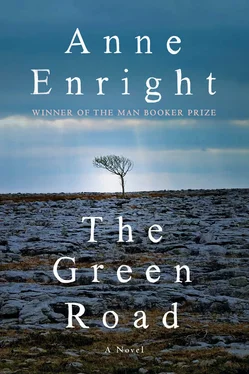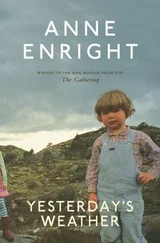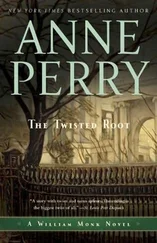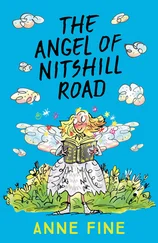‘Fridge is down,’ said Alice.
‘You in long?’
He started to undress, passing her on his way through to the shower, which was just a baffle of low walls, tacked on to the side of the house. The sun blazed into it, and the showerhead was rusted shut. Emmet filled a bucket and slung his clothes over the dividing wall, while Alice turned towards him in the gloom.
‘Mozzies!’ she said, and he pushed the door shut, imagining how he looked to her eyes — sunlit — his narrow white shanks, the tractor tan. Emmet was so long in the heat, the exposed skin was a different age to the hidden parts of him; he had sixty-year-old knees and the belly of a young man. He scraped the water off with the thin towel and bared his gums in the scrap of mirror. He pushed his nose one way and then another to check for cancers, then he reached, still naked, for his hat. The top half of his forehead was white.
There was a fresh sarong waiting for him on a low stool, though he had not seen Ib open the door to leave it there and, when he went inside, the house was deserted. He made his way upstairs and found Alice lying under the mosquito net, thinking.
‘All clean?’ she said, which was all the invitation he needed to get in beside her, and spoon until his hat fell off, and make love, the sweat breaking out, first on him and then on Alice, so the pat-pat of his body against hers turned to slipping and silence.
Afterwards, his thoughts turned to the bowl and the scene at the gate. Emmet hated problems with the staff. You could be saving lives all day and be undone at the end of it by a plate of beans and bad lard. Literally saving lives. Because wars you can do, and famines you can do and floods are relatively easy, but no one survives when the cook scratches his arse and then decides not to bother washing his hands.
The swamp cooler in the window came to and Emmet rolled towards its blessed tedium. The electricity was back. There was a shift in the night air, the sound of voices outside, the smell of woodsmoke and cooking. Alice, dozing in the tangle of thin sheets, gave a faint smile as Emmet bent to kiss her before swinging his legs off the bed. He went back down to the shower stall where he filled another bucket and threw it over himself one more time, and scraped his skin with the same meagre towel, now completely dry.
Ibrahim was busy with the dinner, so he got his own beer from the recently revived fridge. A squat, yellowing thing with a pull handle you don’t see at home any more. There was nothing but beer in it. Emmet was earning good money that year but there wasn’t a whole heap to buy unless you went to the Western supermarket — which Alice was loath to do. Besides, he was too busy to need much. And Alice was always busy. And it was always hot.
She came down from the bedroom, clean and dressed in white.
‘Well now,’ she said.
There was a burr in Alice’s voice that made her sound teasing and drunk, on the permanent brink of a joke. She was from Newcastle. ‘Oh that explains it,’ Emmet said, when they first met. He was not a natural flirt. But there was something easy and terrific about the light in her eye, and it was with some new sense of difficulty that he walked away from her that evening. Her first year in the field, with her corkscrew curls going mad in the heat, it was two months before she cracked, necking rum babas at a UNICEF do, giving out about the photocopier blinking in the corner. ‘How much did that fucking cost?’ she said.
She had just broken up, she told him, with a Swedish guy in Bamako, who was too busy saving the world to save poor Alice. The affair wasn’t so much brief as ‘very very brief’, she said. She was fabulously drunk. Emmet did not complain. He didn’t, in fact, say very much as he walked her back to her guesthouse under a sky thick with stars, while the locals slept or listened in tactful silence to her white woman’s carry-on. Halfway home, she sat down on a stone and wept. She was, she said, deeply disillusioned. Deeply, deeply disillusioned. With herself, really. The idea that she could help anyone, change anything, get the smallest thing done.
Emmet pulled her back to her feet, and hummed that she was doing fine, just fine, she would be fine. And she kissed him as soon as they got inside her door, lifting her foot up behind her, like a girl in a romantic comedy.
She was good at all that.
Unlike other women he had known (and, in fairness, there weren’t that many), Alice did not excel at the preliminaries and then freak out in the bedroom. Or freak out in the morning. Or freak out, two days later, for no reason he could fathom. The dramatics were not a diversion. Alice followed through.
She was a talented lover.
Emmet did not suppose he was — not particularly — though he did have his moments, and Alice was most certainly one of them. He lay awake, that first time, considering his wild good fortune and the sadness that came with it. He worried about his heart, took comfort in the fact that affairs in the field were not built to last.
A week later, he found Alice an old colonial house that she loved but couldn’t quite afford. Then he moved in with her.
‘Don’t worry,’ he said. ‘It’s only temporary.’ Which was not, he thought, a lie.
‘Here’s to you,’ he said, and lifted, in her direction, the dregs of his bottled beer.
‘Mud in your eye,’ said Alice.
Alice had decorated the house with hangings from the market: she hung wind chimes in the doorframes, and a ritual mask on the bedroom wall. They sat on cushions and she ate Ibrahim’s plate of fried fish without cutlery, taking the bones out a little awkwardly with her right hand and balling up the rice. Emmet still liked a fork, if there was a fork to be had. Newbies did nothing but talk about the squitters, like it was a joke. Emmet did not think diarrhoea was a joke. He had seen too many people die of it.
Not, in fairness, that any of them had been white.
So he plied his fork like an old man and remembered the leaky corpses he had seen in one place or another, then he put the corpses out of his mind while Alice clinked her elegant bangles over her plate.
The computers had finally arrived, she said.
‘Oh yeah?’
‘Two of them.’
‘No shit.’
‘Telling you.’
‘Do they work?’
‘Up to a point,’ she said. They were mains powered, so they couldn’t switch them on until the generator was sorted, and when this happened, some time in the middle of the afternoon, they had discovered one of them was Windows 97 and the other was Windows 95. It was not that they were antiques, it was that they were differently antique. You could move stuff from the older to the newer software but not the other way around. And there was no modem.
‘I mean, what’s the fucking point?’
‘Training?’ he said, but Alice had already started to cry.
‘It’s not just the computers,’ she said.
She cried the way she always cried in the evening: vague tears. Her face was simply wet.
‘I know.’
Alice was working on child mortality. Children were hard.
‘You should stay in the office more,’ he said.
It sounded like a joke, but he meant it. She should focus on delivery of mosquito nets and stop gazing at malarial babies, while they died.
‘Maybe,’ she said.
Good, sweet, kind-hearted Alice. Endlessly sweet. Endlessly kind. Emmet had to oblige himself to stay seated and to continue eating and to smile back at her. He was thirty-eight years old, beyond confusion. He was lucky to have her. But he was not yet sure that you could call it love.
The next trip took him beyond Mopti. They drove along the wide Niger, then east along a scratch in the dust that was the road inland. Seven hours out, they saw the shadow where locusts had stripped the land, the edge of it faint but cruelly precise, a secret map that shifted across the paper map, like the landscape’s own weather. This was the line they travelled for the next ten days, with wind-up radios and pesticide packs. When he arrived back at the house Alice washed him, and he washed Alice, and this tenderness was as much as either of them could muster. Alice sat cross-legged inside the mosquito net while he lay behind her on the bed. She said, ‘I have fifteen bites.’
Читать дальше












